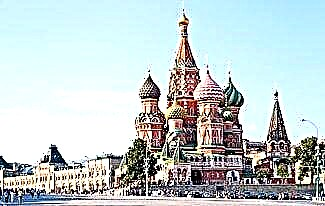In the late 1960s and early 1970s, there was a surge of interest in Buddhism in Europe and the Soviet Union. Buddhism was a very acceptable route for this retreat.

Still, a religion, which is not a religion at all, but a set of practices. No knowledge of sacred primary sources is required, you can officially not change your religion and believe even in communism. At the same time, Buddhism in the version that was promoted in Europe looked like an unconditional victory over human weaknesses: refusal of entertainment and meat food, self-contemplation and meditation instead of an endless struggle for existence, the absence of idols and ready-made answers to all questions. Albert Einstein and Jackie Chan, Richard Gere and Orlando Bloom spoke about respect, if not complete immersion in Buddhism. Media support, of course, raised the status of Buddhism, and renowned scholars and actors made such an advertisement for Buddhism that millions of people rushed to read books composed of rather commonplace stories and discuss them with great ardor, looking for second interpretations or inconsistencies with the context. Although Buddhism is actually as simple as a polished board.
1. The term “Buddhism” was coined in the middle of the 19th century by Europeans, who did not fully understand the essence of the new religion. Its correct name is "Dharma" (law) or "Buddhadharma" (teachings of the Buddha).
2. Buddhism is the oldest of the world's largest religions. It is at least half a millennium older than Christianity, and Islam is about 600 years younger.
3. Siddhartha Gautama was the name of the founder of Buddhism. The son of the Raja, he lived in luxury, until at the age of 29 he saw one day a beggar, mortally ill, a decomposed corpse and a hermit. What he saw helped him understand that power, wealth and worldly benefits cannot save a person from suffering. And then he gave up everything that he had and began to look for the roots of suffering and the opportunity to get rid of them.
4. There are about 500 million followers of Buddhism in the world. This is the fourth religion in terms of the number of believers.
5. Buddhists do not have a God like a god or gods in other religions. They dispense with the personification of the divine essence and worship only good.
6. In Buddhism, there are no shepherds who instruct the ward on the true path. Monks simply share knowledge with parishioners in exchange for food. Monks cannot cook, so they live exclusively on alms.
7. Buddhists profess non-violence, but it is permissible for them to use martial skills to prevent violence and prevent it from spreading. Hence the mass of defensive techniques and tricks, when the energy of the attacker is used against him, in martial arts.

8. The attitude towards the possibility of women to become worshipers in Buddhism is incomparably softer than in other popular beliefs, but nuns still have less rights than monks. In particular, men can argue with each other, but women cannot criticize monks.

9. The time of visiting the temple for Buddhists is not regulated and is not tied to any dates or periods of time. The temples, in turn, are open all year round at any time of the day.
10. Despite the fact that Buddhism originated in India, now in this country there are even fewer Buddhists than Christians - about 1% versus 1.5%. The overwhelming majority of Indians profess Hinduism - a religion that has learned a lot from Buddhism, but much more "fun". If Buddhists immerse themselves in meditation, then Hindus at this time arrange colorful holidays. There are many more Buddhists in percentage terms in Nepal, in China (in the mountains of Tibet), on the island of Sri Lanka and in Japan.

11. Buddhists have only five commandments: you can not kill, steal, lie, drink wine and commit adultery. In principle, all ten Christian commandments fit into them, except for the first, which forbids believing in other gods. And Buddhism really does not prohibit professing another religion.
12. Buddhists are people too: in Thailand, since 2000, a police investigation continues against the leadership of one of the Buddhist temples. In this country, Buddhist places of worship enjoy the right of extraterritoriality. Sometimes - very rarely and only on very large matters - government agencies still try to call Buddhists to order. In this case, there are claims to the leadership of the Wat Thammakai temple in the amount of more than $ 40 million.
13. Buddhism does not impose any restrictions on human nutrition. There is no direct connection between Buddhism and vegetarianism. Some preachers explicitly urged to eat meat and not limit yourself to delicious food.
14. The poet's immortal lines about “you will be a baobab for a thousand years until you die” is also not entirely about Buddhism. Reincarnation is present in the teaching, but this does not at all mean the rebirth of a shoe or a plant in the body of the ciliate.
15. The main thing in Buddhism is one's own practice of cognition. Buddha forbade his disciples to trust even himself - a person must learn the truth on his own.
16. Buddhism is based on the “four noble truths”: life - suffering; suffering arises from desires; to get rid of suffering, one must get rid of desires; You can achieve nirvana if you lead the right way of life and constantly train in contemplation and seek the truth.
17. As Buddhism appeared before Christianity, so the book "Chikchi", which contains the sermons of Buddha and descriptions of the life path of famous preachers and monks, was published before the "Bible". The Chikchi was printed in 1377 and the Bible in the 1450s.

18. The Dalai Lama is not at all the head of all Buddhists. At most, he can be considered the leader of Tibet, whatever that title means. Possessing secular power, the Dalai Lamas divided their subjects, with the exception of a narrow circle of confidants, into serfs and slaves. If even in the comparatively mild climate of Russia, serfs eked out a very miserable existence, what was the life of people of similar status in barren Tibet? The Dalai Lama raised the West to his banner as opposed to communist China.
19. Buddhists in the USSR were persecuted much more strongly than Christians. The leaders were sentenced to imprisonment even in the 1970s, when, for the most part, religious persecution subsided. With the collapse of the Soviet Union, Buddhism began to revive. It is estimated that about a million people in Russia practice Buddhism and about half of them follow Buddhist practices. Basically, followers of Buddha live in Kalmykia, Tuva, Buryatia and Altai.
20. As in any other self-respecting religion, in Buddhism there are several movements, within which there are several schools. However, this does not lead to bloody strife, as among believers in Christ or Mohammed. It's simple: since everyone must learn the truth himself, it cannot be that everyone knows it in the same way. Simply put, in Buddhism there is not, and there cannot be, heresies, the struggle against which claimed millions of lives of Christians or Muslims.









